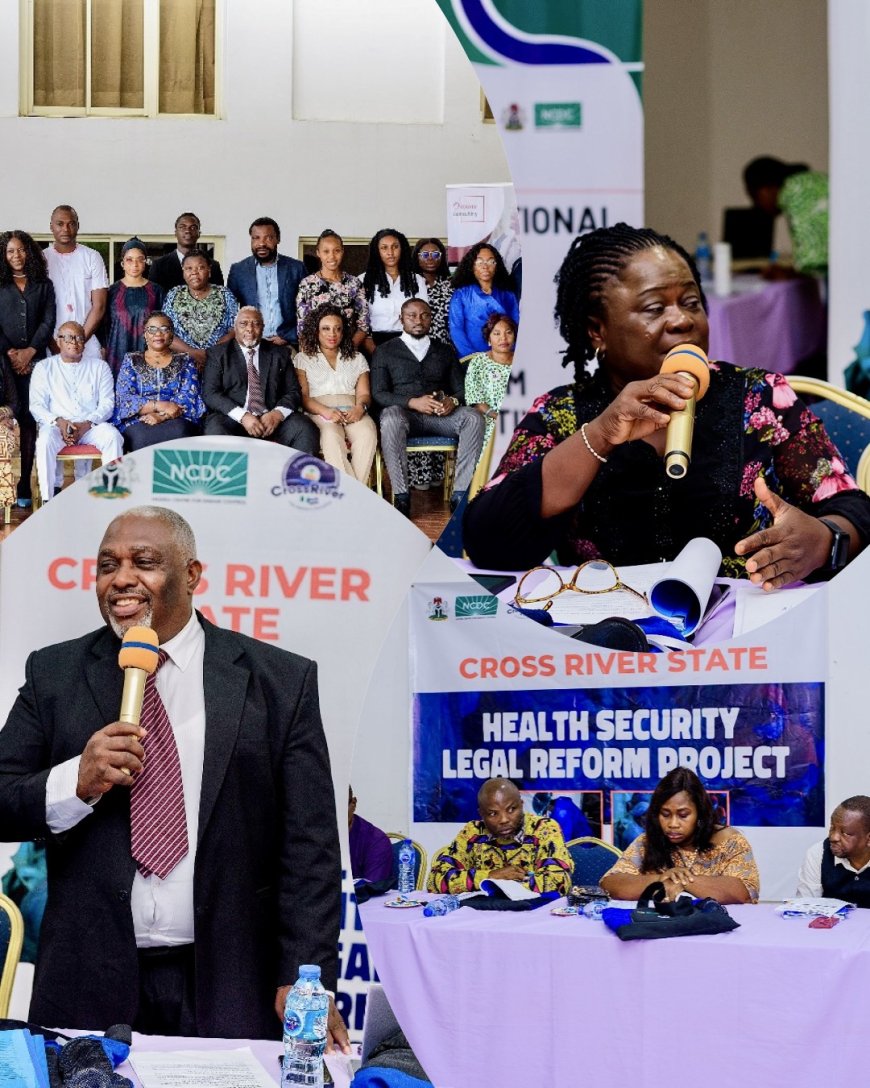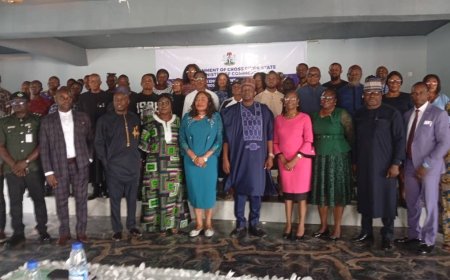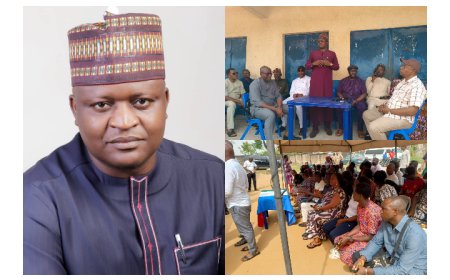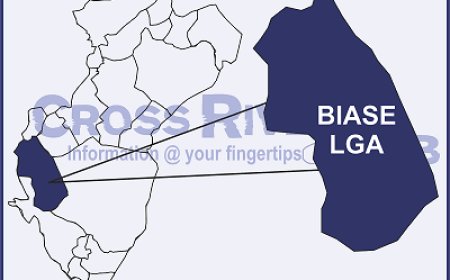Cross River Set to Overhaul Public Health System with New Laws

By Ebi COLLINS
Cross River State is taking bold steps to strengthen its shield against future health threats by drafting two new laws that could redefine how the state responds to emergencies and disease outbreaks.
Between August 12 and 15, 2025, top officials from the Ministries of Health, Livestock, Agriculture, Environment, and Justice gathered at Monty Suites Hotel in Calabar for a four-day workshop. The meeting, organized with support from the Nigeria Centre for Disease Control and Prevention (NCDC) and the global initiative Resolve to Save Lives (RTSL), also drew in civil society groups and health agencies.
At the heart of their discussions were two crucial documents: the Public Health Security Bill and the Animal Health Bill. Once passed, these laws are expected to provide Cross River with the tools to act faster, coordinate better, and manage health crises more effectively. Provisions in the drafts include establishing a state public health laboratory, regulating animal health more tightly, and setting up sustainable financing streams for health security.
Barr. Anthony Effiom, Solicitor General of the Ministry of Justice and chair of the sessions, underscored the importance of the initiative. “A strong legal framework with clearly defined roles is essential for building a system that can protect citizens during emergencies. These Bills will enhance our capacity and ensure that no sector is left behind in the fight against health threats,” he said.
Dr. Inyang Ekpenyong, the State Epidemiologist, stressed that the reforms would provide a modern backbone for surveillance and emergency preparedness. According to her, they represent “a welcome move that will significantly improve how both public and animal health are managed in the state.”
Health experts say the effort also ties into wider national reforms. Pharmacist Chibuzo Eneh, Director of Subnational Support at the NCDC, reminded participants that a key recommendation from Nigeria’s Joint External Evaluation was for states to align with the International Health Regulations (2005). “Many state laws are moribund and outdated, hence the need for a review,” he explained.
RTSL has been working with the NCDC to ensure the proposed laws are not only evidence-based but also inclusive. Barr. Emem Udoh, Senior Legal and Policy Advisor at RTSL, captured the broader vision: “Robust public health laws are essential to saving lives. These Bills will equip Cross River State to act swiftly, coordinate effectively, and protect its most vulnerable during public health emergencies, while safeguarding economic and social stability.”
The drafts will be fine-tuned before being forwarded to Governor Bassey Otu for approval and later presented to the State House of Assembly. If adopted, Cross River will join a handful of states — including Kaduna, Kano, and Jigawa — that are modernizing their legal frameworks for public health security.
For Cross River, stakeholders said the move is more than just paperwork, but a recognition that in today’s world, where pandemics can begin anywhere, the true strength of Nigeria’s health defenses rests not only at the centre but also in the states, where outbreaks are first detected and contained.













































